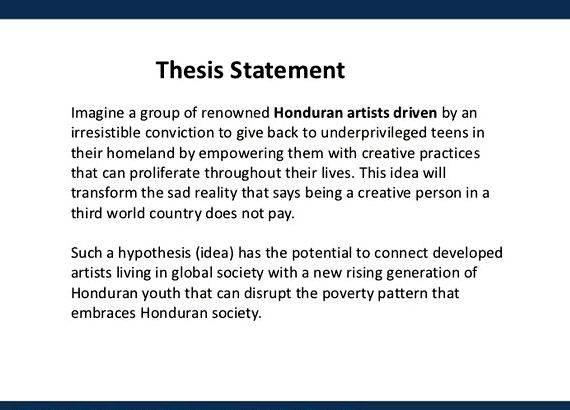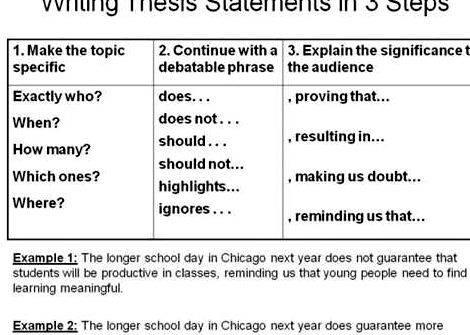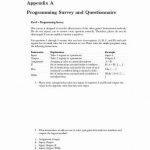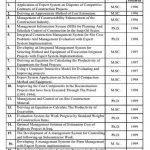Can you make it compelling enough to attract your reader’s mind?
Writing A Thesis Abstract
Tips Revealed To Get You Write An Attention-Grabbing
Thesis Abstract
A thesis abstract is a brief and compact form a thesis giving the important details and introduction to the thesis. A thesis abstract highlights the main points discussed in the thesis. In short, we can say a thesis abstract is a mini-thesis.
How To Write Thesis Abstract?
Writing thesis abstract is a core part of your thesis. So you can’t afford to write it carelessly at all. You should follow the under-mentioned up to the mark guidelines to write a perfect thesis abstract.
7 Vital Writing
Abstract Of Thesis
You need to apply the following tips when you go for writing abstract for thesis.
- First of all, go through your thesis and highlight the objectives, scope, methods, conclusions, and any other important information.
- Write the objectives methods, conclusions, recommendations, prominently discussed in your thesis’s paper.
- Now highlight the outcomes of your thesis.
- Collect all the highlighted sections into one paragraph.
- Rewrite all the information in another way to make it look different.
- Start the first sentence with the phrase this paper or this study.
- Revise your thesis paper to check any errors such as grammar, any left out information, verbosity, and irrelevant information.
Check out your thesis abstract to be sure that you have employed these precautions:
- Thesis is supposed to be written after the completion of thesis. Writing it at early stage might make you miss important details to include.
- Restrict the thesis abstract to two paragraphs.
- Write it in a concise manner that your reader should get a clear idea what should he expect in thesis. Information in your thesis abstract and thesis must match.
- Remove any extra or unnecessary details.
- Write full forms of abbreviations and acronyms when you use it first time.
- Put it in a very simple language since it is to give a quick and clear glimpse of thesis.
- Write the thesis abstract in past tense if you are writing it after completing thesis which is a better way.
- Write in present or future tense if you write it in the beginning.
Sample Thesis Abstract
“The incidence of great fires in the western United States raises questions pertaining to climate change effect of on fire regimes in the past and future. Sagebrush steppe has long been exposed to agriculture, unnecessary cropping and enveloping species. This dying out ecological unit is facing a latest risk of spreading big wildfires and weather change. The purposes of this study were to rebuild the fire history for sagebrush steppe ecosystems across three spatial scales of sagebrush-dominated steppe: a. Idaho National Laboratory, b. Snake River Plain, and c. portions of the Northern Basin and Range to take in the Snake River Plain. This study used geographic information systems (GIS) to associate size and occurrence of fires over 5,000 ha with landscape plant life and climatic variables across manifold spatial and sequential scales. The impact of climate changeability and intense climatic events on fire occurrence and size can differ depending on the spatial and temporal scales over which information is collected and examined.
Large fires grew between 1960 – 2003 both in size and number, and increasingly formed a larger percentage of all wildfires over the time period studied. At the broadest spatial scale, the size of large fires was positively associated with average yearly utmost temperature during the year of the fire happening. Fire occurrence and average yearly precipitation one year preceding to the large fire event were also show a relationship. There was also some connection with topographical side. From 1960 to 2003 the area was subject to an increase in maximum temperature and a decrease in precipitation. Increases in large fire occurrence and size are attributed to increase in air temperature and exotic grasses. My results and the projected tendency toward warmer, drier growing seasons and summers suggest that sagebrush steppe systems may carry on to practice an increase in large fires in the future.”
Free eBook on “How to write a thesis statement in less than 30 minutes”
Click here to download your FREE E-Book on “How To Write Thesis Statement” and write your thesis statement in less than 30 minutes, Guaranteed.
Order Your Custom Thesis Writing Now!
- Any essay type or topic
- Professional writers
- On time delivery
- Money Back guarantee
- Written on your specific topic
- Phone, E-mail Live Chat Support
- Contact your writer anytime
- Guaranteed “A” grade
- Free topic development
- Free unlimited revisions
- Free Plagiarism scan report
- Free Bibliography page
- Free Title page
- Free Table of content
LIMITED TIME DISCOUNT OFFER
These materials were made possible thanks to the generous support from the Kemper K. Knapp Bequest Committee.
On this page, the UW-Madison Writing Center Writer’s Handbook offers advice on writing abstracts and answers questions such as: including:
On the Abstracts: Examples page. you will also find sample Undergraduate Symposium abstracts from a variety of disciplines.
What is an abstract?
An abstract is a concise summary of a larger project (a thesis, research report, performance, service project, etc.) that concisely describes the content and scope of the project and identifies the project’s objective, its methodology and its findings, conclusions, or intended results.
Remember that your abstract is a description of your project (what you specifically are doing ) and not a description of your topic (whatever you’re doing the project on ). It is easy to get these two types of description confused. Since abstracts are generally very short, it’s important that you don’t get bogged down in a summary of the entire background of your topic.
As you are writing your abstract, stop at the end of every sentence and make sure you are summarizing the project you have undertaken rather than the more general topic.
Do abstracts vary by discipline (science, humanities, service, art, or performance)?
Abstracts do vary from discipline to discipline, and sometimes within disciplines.
Abstracts in the hard sciences and social sciences often put more emphasis on methods than do abstracts in the humanities; humanities abstracts often spend much more time explaining their objective than science abstracts do.
However, even within single disciplines, abstracts often differ. Check with a professor to find out about the expectations for an abstract in your discipline, and make sure to ask for examples of abstracts from your field.
What should an abstract include?
Despite the fact that abstracts vary somewhat from discipline to discipline. every abstract should include four main types of information.
What should my Objective/Rationale section look like?
What is the problem or main issue? Why did you want to do this project in the first place?
The first few sentences of your abstract should state the problem you set out to solve or the issue you set out to explore and explain your rationale or motivation for pursuing the project. The problem or issue might be a research question, a gap in critical attention to a text, a societal concern, etc. The purpose of your study is to solve this problem and/or add to your discipline’s understanding of the issue.
Some authors state their thesis or hypothesis in this section of the abstract; others choose to leave it for the “Conclusions ” section.
What should my Methods section look like?
What did you do?
This section of the abstract should explain how you went about solving the problem or exploring the issue you identified as your main objective.
For a hard science or social science research project, this section should include a concise description of the process by which you conducted your research. Similarly, for a service project . it should outline the kinds of service you performed and/or the process you followed to perform this service. For a humanities project, it should make note of any theoretical framework or methodological assumptions. For a visual or performing arts project, it should outline the media you employed and the process you used to develop your project.
What should my Results/Intended Results section look like?
What did you find?
This section of the abstract should list the results or outcomes of the work you have done so far. If your project is not yet complete . you may still want to include preliminary results or your hypotheses about what those results will be.
What should my Conclusion section look like?
What did you learn?
The abstract should close with a statement of the project’s implications and contributions to its field. It should convince readers that the project is interesting, valuable, and worth investigating further. In the particular case of the Undergraduate Symposium, it should convince readers to attend your presentation.
How should I choose my title?
You probably already have some idea for a title for your project. Consider your audience; for most projects, it is best to choose a title that is comprehensible to an audience of intelligent non-specialists.
Avoid jargon ; instead, make sure that you choose terms that will be clear to a wide audience.
What my project isn’t finished? What if my results didn’t turn the way I expected?
More often than not, projects are not completely finished by the time presenters need to submit their abstracts. Your abstract doesn’t need to include final results (though if you have them, by all means include them!).
If you don’t yet have final results, you can either include any preliminary results that you do have, or you can briefly mention the results that you expect to obtain.
Similarly, unexpected or negative results occur often. They can still be useful and informative, and you should include them in your abstract. Talk with your mentor to discuss how such results are normally handled in your discipline.
In any case, whether you have complete, partial, projected, or unexpected results, keep in mind that your explanation of those results their significance is more important than the raw results themselves.
How can I fit all of this into just 125 words?
Bestraightforward. Don’t worry about making your abstract “flow”. Don’t worry about writing a long or elaborate introduction or conclusion, and as we suggested above, don’t include too much background information on your project’s general topic. Instead, focus on what you have done and will do as you finish your project by providing the information we have suggested above .
If your abstract is still too long, look for unnecessary adjectives or other modifiers that do not directly contribute to a reader’s understanding of your project. Look for places where you repeat yourself, and cut out all unnecessary information.
How should I start writing my abstract?
Re-examine the work you have done so far (whether it is your entire project or a portion of it). Look specifically for your objectives, methods, results, and conclusions.
After re-examining your work, write a rough draft without looking back at the materials you’re abstracting. This will help you make sure you are condensing the ideas into abstract form rather than simply cutting and pasting sentences that contain too much or too little information.
Bring your draft to the Writing Center to get feedback from a writing instructor. Call 263-1992 to make an appointment.
What stylistic techniques will make my abstract most effective?
Avoid jargon. Jargon is the specialized, technical vocabulary that is used for communicating within a specific field. Jargon is not effective for communicating ideas to a broader, less specialized audience such as the Undergraduate Symposium audience.
Discipline-specific sentence : Hostilities will be engaged with our adversary on the coastal perimeter.
Revised for a more general audience : We will fight on the beaches.
Discipline-specific sentence : Geographical and cultural factors function to spatially confine growth to specific regions for long periods of time.
Revised for a more general audience : Geographical and cultural factors limit long-term economic growth to regions that are already prosperous.
Discipline-specific sentence . The implementation of statute-mandated regulated inputs exceeds the conceptualization of the administrative technicians.
Revised for a more general audience . The employees are having difficulty mastering the new regulations required by the law.
(Examples excerpted from Lantham, Richard. Revising Prose ; McCloskey, Donald N. The Writing of Economics ; and Scott, Gregory M. and Garrison, Stephen M. The Political Science Student Writer’s Manual .)
Be concise. Don’t use three words where you can communicate the same idea in one. Don’t repeat information or go into too much detail. Don’t just cut and paste sentences from your research paper into your abstract; writing that is appropriate for long papers is often too complicated for abstracts. Read more about general principles of writing clear, concise sentences.
Useshort, direct sentences. Vary your sentence structure to avoid choppiness. Read your abstract aloud, or ask someone else to read it aloud to you, to see if the abstract is appropriately fluid or too choppy.
Usepast tense when describing what you have already done.
Check with a professor in your field to determine whether active or passive voice is more appropriate for your discipline. Read more about active and passive voice.
Don’t cite sources, figures. or tables. and don’t include long quotations. This type of material takes up too much space and distracts from the overall scope of your project.
What kind of feedback should I seek to make sure my abstract is effective?
Work with a professor or another student in your field throughout the entire process of writing your abstract. People familiar with work in your field will be able to help you see where you need to say more and where you need to say less and will be able to help with clarity and precision as well.
Bring your draft to the Writing Center to get feedback from a writing instructor. Call 263-1992 to set up an appointment.
Finally, ask someone you know (a roommate, friend, or family member) who specializes in a different field to read your abstract and point out any confusing points. If you can make your abstract understandable to an intelligent non-specialist, you’ve probably made it effective for the audience of a standard conference or symposium.
(Works Consulted: LEO Writing Abstracts, 1995, ‘96, ‘97, ’98 The Write Place ; Writer’s Workshop, University of Illinois, Urbana, adapted by Kitty O. Locker, 1997.)
Last updated: Monday, November 5, 2007
Feedback, questions or accessibility issues






 Nanung danar dono thesis proposal
Nanung danar dono thesis proposal Working at mcdonalds etzioni thesis writing
Working at mcdonalds etzioni thesis writing Sample survey questionnaire for game thesis writing
Sample survey questionnaire for game thesis writing Subterranean architecture thesis proposal titles
Subterranean architecture thesis proposal titles Masters thesis proposal history channel
Masters thesis proposal history channel






